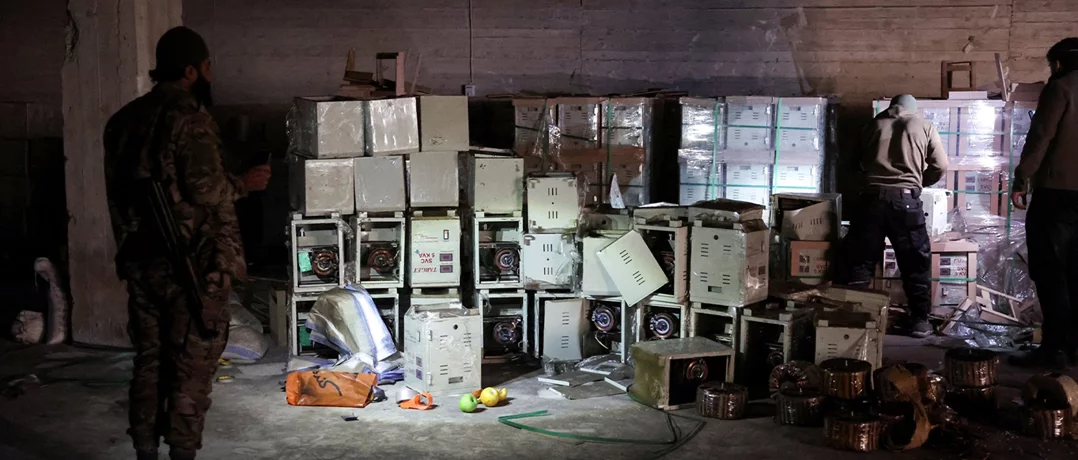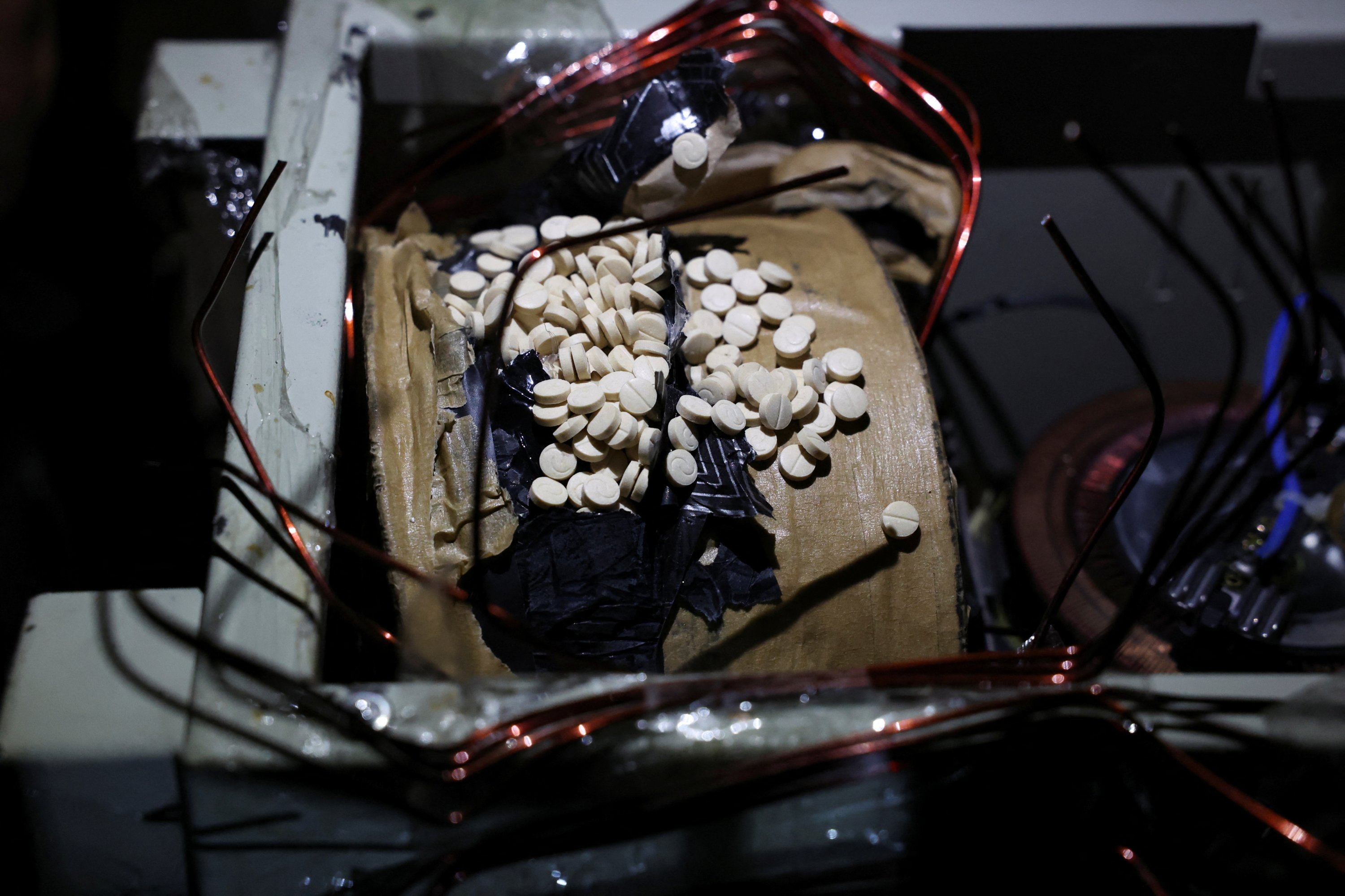Syria has become a narco-state under Assad, with Captagon trafficking controlled by Maher al-Assad’s Fourth Division and funneled through Lebanon to Gulf states, Europe, and beyond.
Lebanon the frontline of Assad's narco-state
Lebanon the frontline of Assad's narco-state


On Lebanon’s eastern frontier, Captagon seizures have become an almost weekly occurrence, a reminder that the Syrian conflict’s most lucrative by-product is spilling across the border. What began as a wartime survival tactic for Bashar al-Assad’s regime has morphed into a transnational drug empire. Today, Lebanon sits at the center of this illicit trade, both victim and conduit, with smugglers using its territory to funnel billions of pills to Gulf states, Europe, and beyond.
The Fourth Division’s Iron Grip
At the heart of Syria’s Captagon industry stands Maher al-Assad, the ex-president’s brother, and his powerful Fourth Division. Commanded like a state within a state, this elite military unit is accused of managing the drug economy from production to export.
“Crossing the Syrian border means paying fees to everyone: customs, the army, political security, and especially the Fourth Division,” one smuggler told The Beiruter. “The Fourth Division is untouchable; without them, Captagon smuggling wouldn’t happen on this scale.”
During the war, the unit became the backbone of Syria’s shadow economy, moving not only drugs but also weapons and goods to extremist groups. Today, it is the single most influential player in the Captagon trade, with the ability to bypass checkpoints and ship drugs unhindered.
Lebanon as a Transit Hub
Lebanon has become a vital artery in this network. Smuggling routes through the Bekaa Valley and southern Lebanon, areas under Hezbollah’s influence, are now key to getting Captagon out of Syria. Trucks, refrigerated containers, and even livestock shipments have been used to conceal millions of pills.
The profits are staggering: a successful crossing can net a smuggler $10,000–$14,000, compared to Lebanon’s average monthly wage of just a few hundred dollars. But the risks are equally brutal. In one case, a child from the Ramthan clan was killed while transporting drugs, highlighting the ruthless exploitation at the heart of the trade.
The consequences for Lebanon are profound. While seizures grab headlines, they also reveal the state’s weakness. Smuggling continues because border controls are porous, corruption is rife, and political factions benefit from the flow of narcotics.
Captagon as Assad’s Survival Strategy
For Damascus, Captagon has become more than a drug. It is an economic and political weapon. With sanctions crippling Syria’s formal economy, narcotics are a substitute for lost revenues. Maher al-Assad is widely believed to have orchestrated the drug’s rise, using it to fund the regime and secure loyalty among allies.
A 2023 U.S. congressional hearing described the trade as “a strategic tool by the Syrian regime to destabilize neighboring countries, particularly Jordan and Saudi Arabia.” With salaries in Syria as low as $15 per month, young people have been drawn into the business, their desperation fueling a multibillion-dollar industry.
 A container holds Captagon pills on the outskirts of Damascus, Syria, December 12, 2024. Photo:Reuters
A container holds Captagon pills on the outskirts of Damascus, Syria, December 12, 2024. Photo:Reuters
Hezbollah’s Regional Role
The Captagon network does not stop at Syria’s borders. Jordan has reported a surge in trafficking linked to Hezbollah, often in coordination with Syria’s Fourth Division. According to the UN Office on Drugs and Crime, Syria and Lebanon are now the two main departure points for Captagon, with Saudi Arabia accounting for two-thirds of global seizures.
Between 2014 and 2022, Riyadh confiscated some 700 million pills smuggled largely through Lebanon, an astonishing figure that underscores Beirut’s role as both accomplice and casualty. Gulf states have grown increasingly vocal, warning that continued smuggling could lead to sanctions or bans on Lebanese exports.
The Human Toll
Behind the billions lie lives destroyed. Captagon, nicknamed the “poor man’s cocaine,” is cheap, addictive, and linked to aggression and long-term health damage. In both Syria and Lebanon, entire communities are drawn into the trade, from impoverished farmers to children pressed into smuggling.
“Smugglers can earn more in a night than their families could in a lifetime,” one report noted. The temptation is immense, but the cost is often fatal.
International Response: Too Little, Too Late?
Western governments have sanctioned Assad relatives and close associates, including Khalid Qaddour, described as a “key producer and facilitator.” Washington also launched a strategy to target Syria’s production and Hezbollah’s role. Yet critics argue that enforcement remains limited, and the flow of pills shows no sign of slowing.
In the first five months of 2023 alone, more than 100 million pills were seized across the Middle East. For every truck intercepted, experts warn, many more make it through.
What began as Assad’s survival mechanism has entrenched itself as Syria’s largest export. Today, Lebanon is paying the price. With a collapsing economy, fragile institutions, and powerful groups benefiting from the flow, the country has become the frontline of the region’s narco-state.


